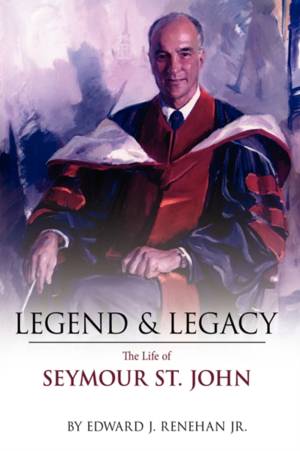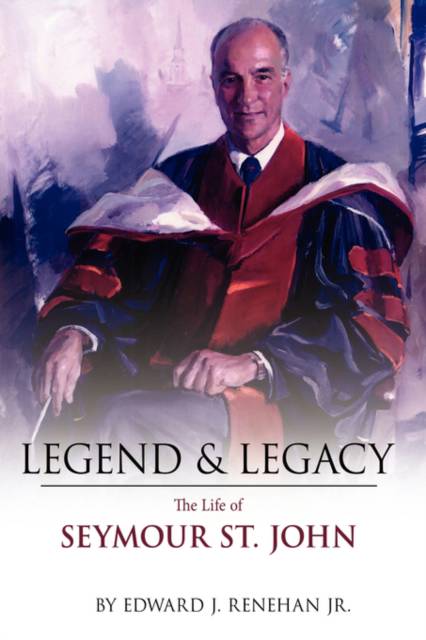
- Afhalen na 1 uur in een winkel met voorraad
- Gratis thuislevering in België vanaf € 30
- Ruim aanbod met 7 miljoen producten
- Afhalen na 1 uur in een winkel met voorraad
- Gratis thuislevering in België vanaf € 30
- Ruim aanbod met 7 miljoen producten
Zoeken
€ 22,95
+ 45 punten
Uitvoering
Omschrijving
In his The Autocrat at the Breakfast Table, Oliver Wendell Holmes wrote: "The world's great men have not commonly been great scholars, nor its great scholars great men." The Rev. Seymour St. John, D.D., (1912-2006) proved the exception to this rule. A gifted scholar, vigorous teacher, intrepid administrator, passionate athlete, and devoted man of the cloth, Seymour was also - as virtually all who knew him agree - a wonderfully gifted individual and, in the final analysis, a truly great man. The profound impact of St. John upon on an entire generation of students during his tenure at Choate - later Choate Rosemary Hall - cannot be overstated. St. John assembled one of the finest faculties in the world, expanded the school's infrastructure and constituency, and cemented Choate's place in the forefront of northeastern preparatory schools. Seymour's friends included I.M. Pei, Jack Kennedy, Eleanor Roosevelt, Douglas Dillon, Paul Mellon, George H.W. Bush, and playwright Edward Albee. St. John's uncle, Charles Seymour, was President of Yale (from which Seymour graduated Phi Beta Kappa); his mother a Greek scholar; his father the longtime Headmaster of Choate before Seymour's tenure. Seymour St. John distinguished himself as a naval officer in Europe during World War II. He won a battle star for his participation in D-Day. Later on, he was instrumental in reinvigorating ravaged continental shipping and fishing ports, and otherwise worked to bring order to the abject chaos that was postwar Europe. Ranging in terrain from Wallingfort, Ct. to Haversham, RI, Jupiter Island, Florida, and the far corners of the world, this superb biography, based on private papers held by Seymour's widow Marie L. St. John, chronicles the story of a brilliant and vital man whose life was a blessing not only to himself, but to all whom he encountered.
Specificaties
Betrokkenen
- Auteur(s):
- Uitgeverij:
Inhoud
- Aantal bladzijden:
- 304
- Taal:
- Engels
Eigenschappen
- Productcode (EAN):
- 9781438915647
- Verschijningsdatum:
- 25/09/2008
- Uitvoering:
- Paperback
- Formaat:
- Trade paperback (VS)
- Afmetingen:
- 152 mm x 229 mm
- Gewicht:
- 449 g

Alleen bij Standaard Boekhandel
+ 45 punten op je klantenkaart van Standaard Boekhandel
Beoordelingen
We publiceren alleen reviews die voldoen aan de voorwaarden voor reviews. Bekijk onze voorwaarden voor reviews.







